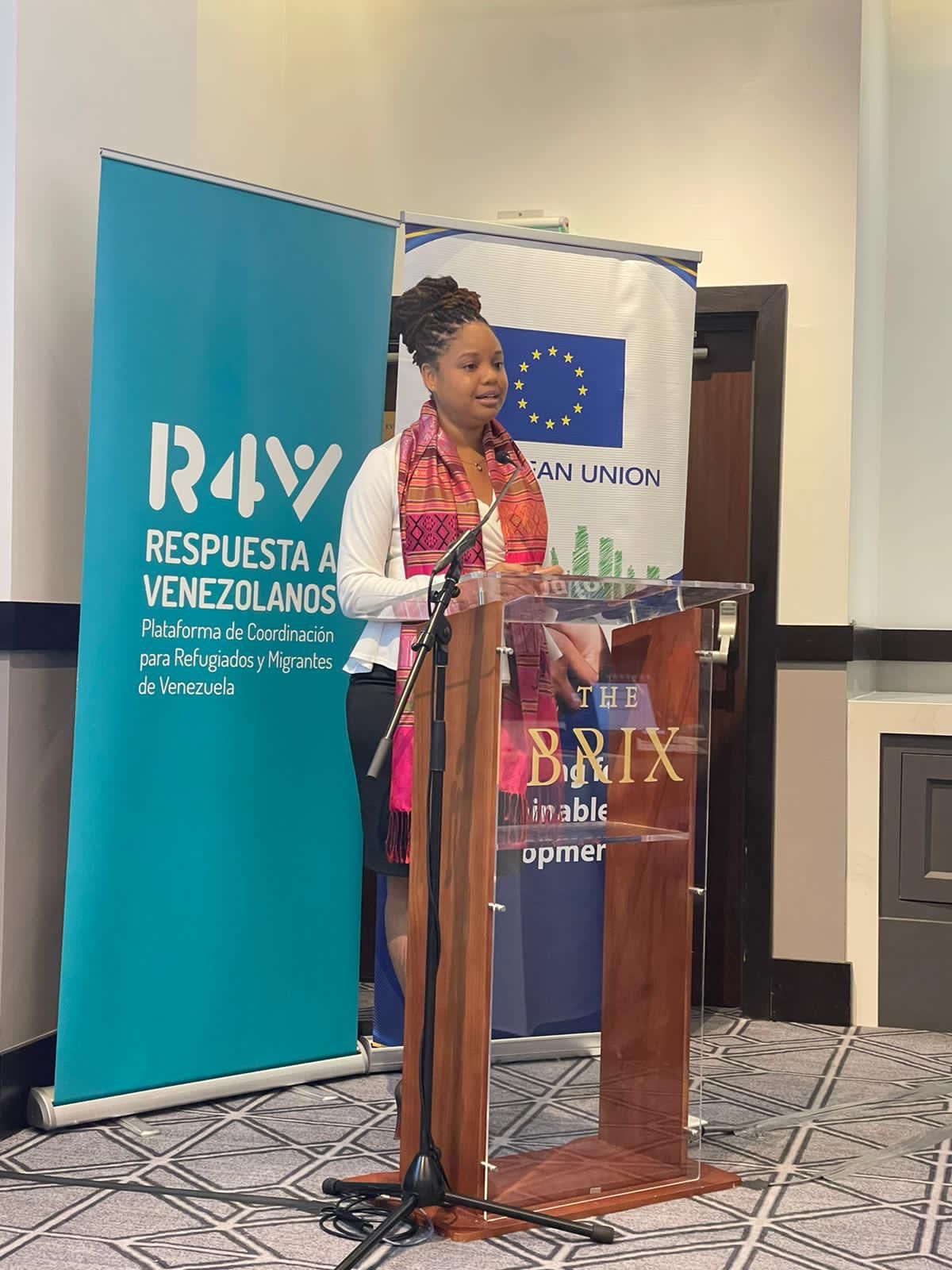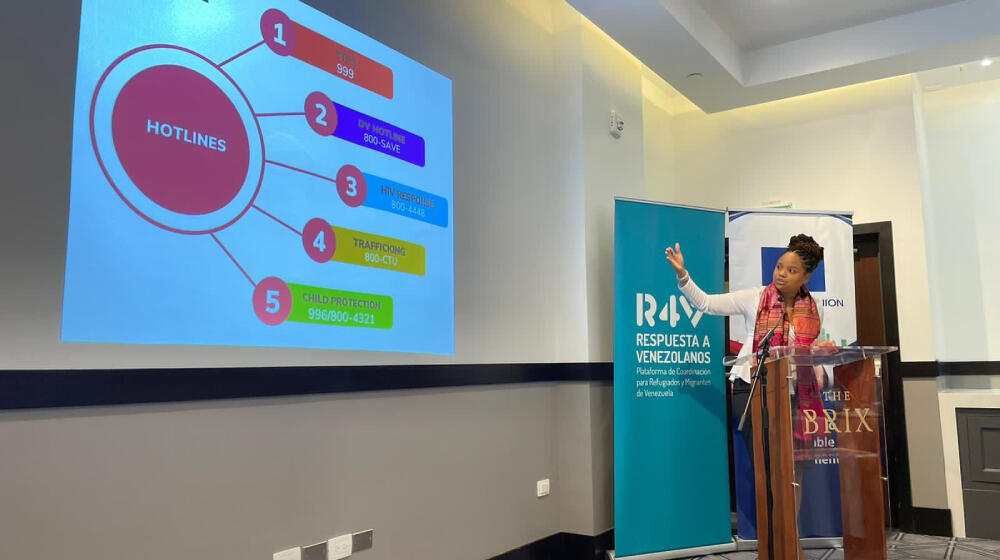How does an emergency migration situation impact or exacerbate the occurrence of gender-based violence and what are some of the key factors of an appropriate response?
Titian-Rose Whittle, the GBVIE Sub-Sector Coordinator for UNFPA’s Sub-Regional Office for the Caribbean shared insights as to how service providers can respond without inadvertently causing harm to the recipients, and how using a survivor centered approach, guided by the GBV principles results in positive impacts.
Born out of the need to sensitize key partners about the Venezuelan migrant and refugee crisis in Trinidad and Tobago, the Response for Venezuelan Platform (R4V) hosted its 3rd Humanitarian Breakfast. Presentations in the series of breakfast meetings highlight the context, challenges, best-practices, and opportunities for collaboration for embassies, high commissions and international agencies interested in supporting the migrants and refugees.

While the breakfast series is hosted by IOM, UNFPA took the lead on this session with the presentation on gender-based violence.
Whittle’s December 12th presentation discussed the humanitarian operational context, including the legal and policy environment of GBV, the types of responses from various institutions and shared on the existence of accessibility, funding and policy gaps for Venezuelan migrants and refugees.
Overall, the Humanitarian Breakfast Series event was successful and informative, as it shed light on the issue of gender-based violence and the efforts being made to address it in Trinidad and Tobago.
The impact of Titian-Rose’s presentation and the emphasis placed on highlighting and addressing gaps related to GBV mitigation and response has opened the door for future partnerships.
Among other participants, Peter Cavendish, Ambassador to the European Union remarked about the impact of the presentation. The Ambassador proposed that the two agencies should discuss the potential for a future collaboration.


